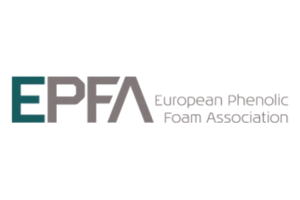The European Phenolic Foam Association (EPFA), founded in 1990, is a trade association representing companies involved in the production and supply of phenolic foam products used predominantly within the insulation industry. It was established to succeed the UK-oriented Phenolic Foam Manufacturers Association (PFMA) and broaden its reach to Europe, thus facilitating easier access and engagement with relevant European Community bodies concerning key legislative and regulatory issues. EPFA’s members include producers of phenolic foam insulation, resin suppliers, and firms closely linked to the industry through raw material provision.
EPFA aims to promote the benefits of phenolic foam, emphasizing its superior performance characteristics such as low flame spread, smoke emission, low toxicity, and excellent thermal conductivity. These properties make phenolic foam a highly valued material for applications in building and construction, factory-engineered composite panels, petrochemical processes, refrigeration, and specialist applications. The association is active in advocating for phenolic foam within the context of European environmental and construction policies.
Key EU regulatory frameworks targeted by EPFA include the European Green Deal, Circular Economy Action Plan, the Regulation on Ecodesign for Sustainable Products, the Ecodesign and Energy Labelling Working Plan 2022-2024, Construction Products Regulation, REACh Regulation, Directive on Green Claims, and guidelines on end-of-waste recycling and design for recycling. EPFA promotes its members’ collective interests related to these EU legislative proposals and policies, striving to ensure phenolic foam’s role is recognized in sustainable product development and construction sector frameworks.
Registered with the EU Transparency Register since January 23, 2024 (registration number 164044652574-14), EPFA declared lobbying costs between €50,000 and €99,999 for the 2022 financial year. It reports employing two lobbyists at a combined 0.5 full-time equivalent (FTE), although none have accreditation to the European Parliament. The association participates in workshops and public hearings but has not declared any high-level meetings with the European Commission or the European Parliament so far.
Headquartered in the United Kingdom, EPFA maintains affiliations with the Construction Products Association, the European Association of ETICS, Construction Products Europe, and the Fire Sector Federation. These networks bolster its influence and coordination within the industry sectors it represents.
Overall, EPFA serves as a focused advocacy entity operating at the EU level to enhance the recognition and regulatory acceptance of phenolic foam products, aligning with broader EU sustainability, safety, and performance goals in building and insulation industries.


